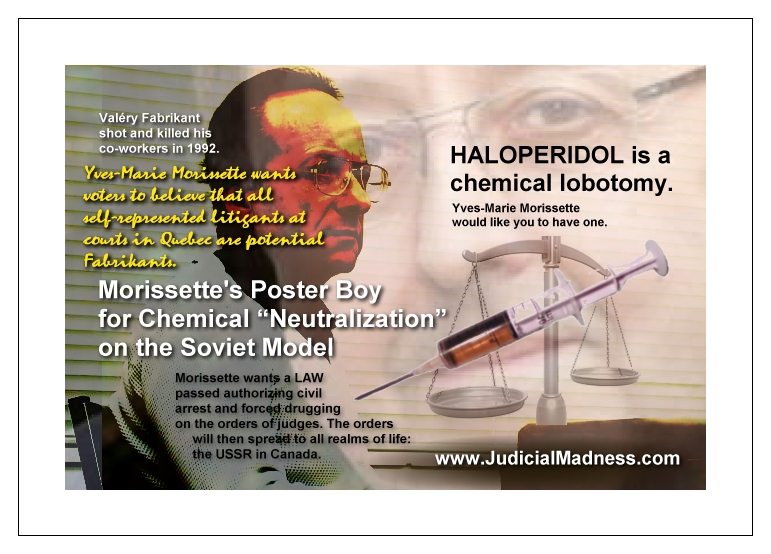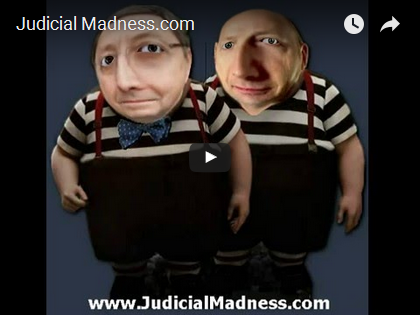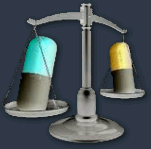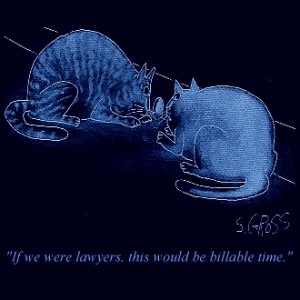Collected Highlights from Hansard
Qu’est-ce que ça veut dire, ce mot-là? … «Quérulence»
What does that word mean? …
“Querulousness”
Exclusive English translation of Hansard for Judicial Madness
|
Maître Paul Bégin : Et je voudrais dire que, quand on plaide que le citoyen ne comprendra pas, il y a un problème dans cet argument-là, parce que, si les citoyens ne sont pas des spécialistes, par hypothèse, ils ne connaissent pas le Code. Alors, quand ils vont prendre connaissance du Code, ils vont lire ce qui est là et ils vont dire: Qu’est-ce que ça veut dire, ce mot-là? Par exemple, un mot qui a été utilisé, on ne le connaissait pas personne ? je le dis avec respect ? le mot «quérulence». Qu’est-ce que c’est que le mot «quérulence»? Si vous allez dans le dictionnaire, vous allez savoir que c’est exactement le phénomène que l’on connaît des personnes qui abusent de la procédure, et c’est vraiment une expression très courante et que le Barreau lui-même a utilisée, par exemple, dans un atelier, au mois de mai, au Manoir Richelieu. Alors, c’est un mot nouveau mais qui exprime un concept vraiment moderne, et pourquoi ne pas l’utiliser? Alors, je pense que ça, quand le citoyen va voir qu’est-ce que ça veut dire «quérulence»… Nous, on ne le savait pas. On va regarder dans le dictionnaire puis on va le savoir, même chose pour le citoyen. Et, inversement, si les avocats sont des spécialistes, c’est leur devoir que d’apprendre les lois nouvelles et de se familiariser. – Maître Paul Bégin, lors du réforme du Code de procédure civile, phase II (14 h 10), Journal des débats (Hansard) of the Committee on Institutions, Version finale, 36th Legislature, 2nd Session, Tuesday, September 3, 2002 - Vol. 37 N° 90. |
Maître Paul Bégin : And I would like to say that, when one argues that the citizen will not understand, there is a problem with that argument, because, if the citizens are not specialists, by supposition, they do not know the Code. Then, when they take note of the Code, they will read what is there and they will say: What does that word there mean? For example, a word which has not been used by anybody? I say it with respect ? the word “querulousness”. What is it that word “querulousness”? If you look in the dictionary, you will know that it is exactly the phenomenon connected with people who abuse legal procedure, and it’s really a very current expression that the Bar itself has used, for example, in a workshop in May at the Manoir Richelieu. So, it’s a new word but which expresses a quite modern concept, and why not use it? So, I think that, when the citizen sees what it means, what “querulousness” means… Us, we didn’t know it. We looked in the dictionary, then we knew, same thing for the citizen. And, conversely, if lawyers are specialists, it’s their duty to learn the new laws and to familiarize themselves. – Maître Paul Bégin, during the reform of the Code of Civil Procedure, phase II (14 h 10), Journal des débats (Quebec Hansard) of the Committee on Institutions, final version, 36th Legislature, 2nd Session, Tuesday, September 3rd, 2002 – Vol. 37 N° 90. |
People to be declared “querulent” (mentally ill) to stop their “useless” ethics complaints, seen as a mere desire for public attention
Les gens doivent être déclarés « quérulents » (maladie mentale) pour arrêter leurs plaintes déontologiques « inutiles », vues simplement comme un truc pour attirer l’attention du public
Exclusive English translation of Hansard for Judicial Madness
|
|
|
|
|
|
|
Prise en considération du rapport de la commission qui en a fait l’étude détaillée |
Consideration of the report of the Commission which conducted the detailed study |
|
Le Vice-Président (M. Picard): À l’article 25, l’Assemblée prend en considération le rapport de la Commission des institutions sur le projet de loi n° 45, Loi modifiant la Loi sur le Barreau. Y a-t-il des interventions? M. le député de Saint-Hyacinthe et porte-parole en matière de justice pour l’opposition officielle. |
The Vice President (Mr. Picard): In Article 25, the Assembly is taking into consideration the report of the Committee on Institutions on Bill 45, Law to amend the Law on the Bar Association. Are there any interventions? Mr. Deputy from Saint-Hyacinthe and spokesman on the subject of justice for the Official Opposition. |
|
|
|
|
M. L’Écuyer: Alors, merci, M. le Président. Nous sommes, aujourd’hui, à l’étape de la prise en considération du rapport de la commission. Après avoir analysé le projet de loi article par article avant-hier, je me réjouis du contenu du projet de loi de même que de la rapidité du processus à en venir à l’adoption. Je suis très heureux du travail qui a été accompli en commission, où tous les parlementaires ont été à la fois précis et efficaces. Nous avons posé un certain nombre de questions, du côté de l’opposition officielle, et nous estimons avoir trouvé des réponses satisfaisantes de la part du ministre et de ses collègues. Nous tenons à l’en remercier grandement. |
Mr. L’Écuyer: So, thank you, Mr. President. We are, today, at the stage of considering the report of the committee. Having analyzed the bill article by article the day before yesterday, I am happy with the content of the bill as well as with the speed of the process leading to its adoption. I am very happy with the work which has been accomplished in committee, where all the parliamentarians have been both precise and businesslike. We posed a certain number of questions, from the side of the Official Opposition, and we believe we have found the responses satisfactory on the part of the Minister and of his colleagues. We sincerely thank them. |
|
Comme nous avons eu l’occasion de le dire déjà, nous sommes en parfait accord avec le principe. Je pense qu’il va de soi que les avocats qui ont participé toute leur vie, le tout dans un souci de reconnaissance, puissent utiliser le titre d’avocat à la retraite et être inscrits au tableau de l’ordre à titre d’avocats à la retraite. Cela va permettre quand même à des gens de notre société qui ont toujours oeuvré dans le domaine de la justice de pouvoir bénéficier en fait d’une certaine renommée que je crois pleinement méritée. |
As we have already had occasion to say, we are in perfect agreement with the principle. I think it goes without saying that the lawyers who have participated all their lives, with a view to recognition, can use the title of lawyer at retirement and be registered with the Order as retired lawyers. That will nonetheless permit to members of our society who have always worked in the field of justice to be able to benefit in fact from a certain renown that I believe to be entirely merited. |
|
Le ministre a déposé, durant nos travaux, un certain nombre de nouveaux articles, ajoutant une partie au projet de loi qui traite de la question de la quérulence. Nous sommes en accord avec les mesures adoptées en commission parlementaire et nous souhaitons que cela va aider les acteurs et aussi les décideurs dans le domaine de la discipline, au niveau professionnel. Nous nous assurerons que certains de ces comités de discipline des ordres professionnels ne soient pas simplement occupés par des gens qui présentent à répétition des recours, des contre-recours et d’autres procédures inutiles pour avoir une tribune publique, pour être capables de faire valoir certains droits, lesquels sont des droits qui empêchent d’autres citoyens de faire valoir leurs propres droits à l’intérieur de ces ordres disciplinaires. |
In the course of our work, the Minister tabled a certain number of new articles, adding a section to the bill dealing with the question of querulousness. We are in agreement with the measures adopted in parliamentary committee and we would hope that would assist the actors and also the decision makers in the field of discipline, at the professional level. We will ensure that some of the these disciplinary committees of the professional orders are not simply put to work by people who repetitiously file recourses, counter-recourses and other useless procedures in order to have a public venue, in order to be able to validate certain rights, which are rights that preclude other citizens from validating their own rights within these disciplinary orders. |
|
J’aurai certainement l’occasion de développer plus en profondeur sur ce sujet qui me tient à coeur lors de l’adoption finale et de souhaiter également que ces dispositions sur la quérulence donnent le goût au ministre de la Justice de s’attaquer aussi à un problème, le SLAPP, c’est-à-dire les poursuites qui sont prises contre des gens qui font des poursuites publiques, qui doit être réglé le plus rapidement possible. Alors, j’inviterais le ministre éventuellement à présenter, dans le cadre de son souci d’accès à la justice et aussi d’une justice plus saine, et plus dynamique, et plus équitable, à déposer un projet de loi en ce sens. Alors, merci, M. le Président. |
I will certainly take the opportunity to develop more in-depth knowledge on this subject which is close to my heart during final adoption; and to also hope that these provisions on querulousness give the Minister of Justice a taste for attacking another problem, the SLAPP, i.e. the law suits instituted against people who make their law suits public, which must be regulated as soon as possible. Then, I would eventually invite the Minister, in the framework of his preoccupation with access to justice and also with a healthier, fairer and more dynamic justice system, to table a bill in that sense. So, thank you, Mr. President. |
|
– M. Claude L’Écuyer, Journal des débats (Hansard) de l’Assemblée nationale, Version finale, 38ième Législature, jeudi, 13 décembre 2007- Vol. 40 N° 54. |
– Mr. Claude L’Écuyer, Journal des débats (Hansard) of the National Assembly, Final version, 38th Legislature, Thursday, December 13th, 2007- Vol. 40 No. 54. |




